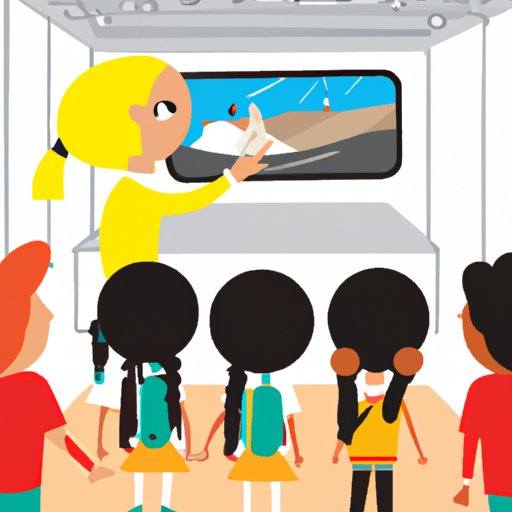Introduction
A field trip is an educational excursion away from the school setting, where students learn by exploring their environment. It can involve visiting a museum, historic site, nature preserve, or other educational institution, and is often used to supplement classroom learning. Field trips provide students with the opportunity to explore new ideas and concepts in a fun and interactive way.
When planned and executed properly, field trips can have numerous educational benefits for students. They can help to enhance creative and critical thinking skills, increase student engagement, build social skills, and develop appreciation for different cultures and environments. In this article, we will explore the educational benefits of field trips for students in more detail.
Experiential Learning Opportunities
One of the main benefits of field trips for students is that they offer opportunities for experiential learning. Experiential learning is a form of active learning, which involves engaging in activities that allow students to directly experience, observe, and reflect on the subject matter being studied. This type of learning has been proven to be effective in helping students to better understand and retain the material.
During a field trip, students can participate in activities such as visiting museums, observing wildlife, touring historic sites, and engaging in team-building exercises. These activities provide students with hands-on learning experiences that are difficult to replicate in the classroom setting. When students are given the chance to explore a topic or concept in person, they tend to be more engaged and motivated to learn.
Inspiring Creativity and Fostering Critical Thinking Skills
Field trips can also be used to inspire creativity and foster critical thinking skills in students. By exposing them to new ideas and concepts, field trips can spark curiosity and encourage students to think outside the box. This can lead to increased engagement and motivation to learn more about the topic. Additionally, field trips can help to develop problem-solving skills as students are encouraged to find creative solutions to challenges they encounter during their visit.
Impact on Student Engagement
Field trips can have a positive impact on student engagement, as they provide students with the opportunity to explore topics in a fun and interactive way. This can help to break up the monotony of traditional classroom instruction and increase student interest in the subject matter. As students become more engaged in their learning, they are more likely to retain the information and apply it to future lessons.
Building Social Skills
Field trips also provide students with valuable opportunities to build social skills. During a field trip, students are typically placed in new settings and asked to work together to complete tasks or solve problems. This can help to foster collaboration and teamwork among students, which are important skills for success in any career. Additionally, field trips can provide students with the opportunity to work with peers from different backgrounds, which can help to promote understanding and respect for diversity.

Developing Appreciation for Different Cultures and Environments
Finally, field trips can help to develop an appreciation for different cultures and environments. By visiting unfamiliar places, students can gain insight into the history and culture of a particular area. This can help to broaden their perspective and cultivate empathy for people from different walks of life. Additionally, field trips can help to raise awareness of environmental issues and encourage students to take action to protect their local ecosystems.
Conclusion
In conclusion, field trips can provide numerous educational benefits for students. They offer experiential learning opportunities, inspiring creativity and fostering critical thinking skills, increasing student engagement, building social skills, and developing appreciation for different cultures and environments. Teachers and parents should take advantage of the potential of field trips to maximize the educational benefits for students.
(Note: Is this article not meeting your expectations? Do you have knowledge or insights to share? Unlock new opportunities and expand your reach by joining our authors team. Click Registration to join us and share your expertise with our readers.)
